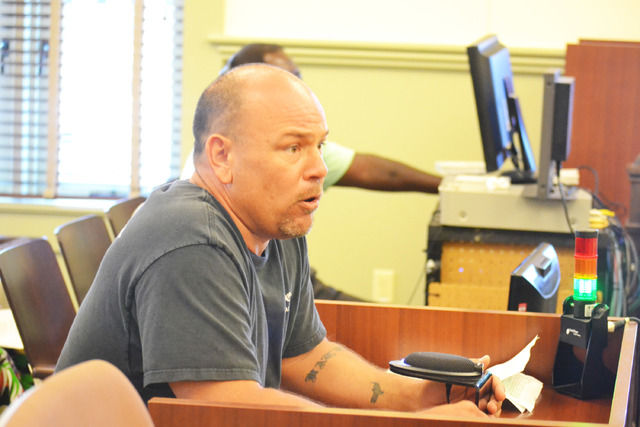Members of the public testified Wednesday on a measure that would charge hikers who ignore warning signs for costs to rescue them if they get in trouble. “One thing comes to my head: Who’s gonna make the call that the
Members of the public testified Wednesday on a measure that would charge hikers who ignore warning signs for costs to rescue them if they get in trouble.
“One thing comes to my head: Who’s gonna make the call that the person was negligent?” asked Waimea resident Kalyon Kubo. “That would be one good one, recovery — if people was totally gross negligent.”
About 20 people attended the meeting in the council chambers.
Bill 2589, introduced by Kauai County Councilman Mason Chock, would allow government agencies engaged in search-and-rescue operations to seek reimbursement from “individual or individuals with intentional disregard for safety, such as disregarding a warning or notice.”
He said the testifiers gave good points, but he wanted to be clear the bill’s language is similar to that in the Hawaii revised statutes.
“The specific purpose of this is bill is that we don’t want to go out there and start charging everybody for rescues,” Chock said. “It’s accomplishing one thing that’s significant: It’s putting into alignment the verbiage of intentional disregard of safety, which is the same verbiage used in the state HRS.”
Matthew Bernabe of Kapaa said he supports recovery fees but would like to see more effort from the Department of Land and Natural Resources.
“I still believe there’s another mechanism in this session to alleviate the liability from the county,” he said. “Identify the state trails and force the DLNR to do their jobs. Most of the issues that we have are state trails — Kalalau, Hanakapiai.”
Felicia Cowden, a North Shore resident, said she didn’t support the bill because of liability concerns.
“My concern would be for that layer where a person doesn’t have the money and say, ‘no don’t take me,’ and then they don’t make it because of that judgment,” she said. “It leaves the county open to liability.”
Kubo questioned the language of negligence.
He asked what would happen if a person took a wrong turn on a trail, got lost and needed to be rescued.
“Was she negligent when she took that wrong turn? Think about it in that sense,” he said.
Alice Parker of Lihue said the example Kubo gave does not constitute negligence.
“If someone takes a wrong turn on trails not well-marked, that’s not negligence,” she said. “I don’t think we pursue that. Trails that are used should be marked or you would be liable, I would say.”
Bernabe asked the council, “How do you prove negligence?”
“Maybe if we put a body of work together that states, ‘If you wanna go into the interior of our island, you need to be with a certified guide,’” he said. “In other countries, you get guides. Most people that I talk to ask me, ‘How come there’s no guide service on Kauai?’ The guides that go into Kalalau are illegal and the DLNR are chasing them.”
The measure goes to the Public Safety Committee Wednesday.


